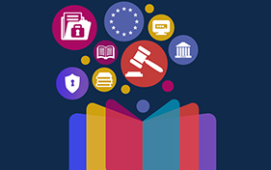
Technology is providing companies with the tools to improve their ESG performances. But could that tech itself be undermining some of those gains, could it be having unforeseen negative impacts?
When the question occurred to technologist Charles Radclyffe while working on AI for a major London investment firm, he discovered there was no way of finding an answer: Nobody was gathering the data in a way that could bring transparency to corporate digital responsibility (CDR).
His response was to co-found EthicsGrade, an AI-supported ESG data and analytics provider that has launched what is thought to be the world’s first CDR scoring platform. The tool provides financial institutions with assessments of the risks to which companies are exposed by their cybersecurity strategies, their algorithmic processes and their infrastructure demands.
“I was looking at governance and how we make sure that we get all the benefits from technologies without causing the firm harm and it seemed likely this would become an ESG domain,” Radclyffe told ESG Insight. “It was apparent that would require an assessment of the quality and maturity of governance at these organisations and provide that data back to the investment community.”
Sustainability Lens
EthicsGrade joins a growing band of data companies that are providing solutions to the mushrooming ESG market as all facets of economic activity are scrutinised through a sustainability lens. Climate concern remains the primary focus of ESG investors but now they are also taking into consideration less understood risks, such as those presented by nature loss and cybersecurity strategies.
EthicsGrade assesses the potential harms to which a company could be exposed through its CDR governance structures. The most important one is cyberthreats, which can inflict long-standing damage on a company. Research by Morningstar’s Sustainalytics recently found that a year after cyberattacks, the corporate victims experienced an 8.7 per cent decline in their stock returns from the previous year.
Social justice is also measured by EthicsGrade, focusing on the real-world outcomes of algorithmic processes. As an example, Radclyffe points to the outrage that erupted when critical UK school grades were calculated by an algorithm when Coronavirus pandemic mitigation measures made it impossible for children to sit exams.
The third pillar of EthicsGrade’s scores is trained on the sustainability of physical technology, such as the energy required to run data centres and provide the computational power to train AI. Radclyffe anticipates an imminent backlash against companies seen as responsible for e-waste, particularly consumer electronics manufacturers that build short-life obsolescence into their products.
“People know that the aviation industry accounts for 4 per cent of our CO2 emissions – which is a very big number – but the tech industry is also responsible for 4 per cent and no one really talks about that,” he said. “And data centres, all they do is turn electricity into fancy maths and heat is the by-product of that.
Data Sources
EthicsGrade trains its AI analytics by scraping publicly available ESG data on companies and taking relevant CDR information from that. The assessed companies are given an opportunity to provide their own input, adding data that’s not available from public sources, and scores are then calculated.
The company, which rates around 3,000 companies now but hopes to have expanded that to full markets by next year, processes the data into contextual assessments that are fed into clients’ databases. The only underlying data it includes is that which is already publicly available.
Crowdsourced Data
In another facet of the assessment process, EthicsGrade enables online users to inspect its company reports for free, asking in return only that they complete a short questionnaire about their relationship with that company. Some of the questions can appear cryptic; one asks visitors to say which they care more about, bees or dolphins.
The responses help EthicsGrade establish what risks are material to those firms. That in turn helps them to hone down their research strategies on companies.
“We have to be highly selective about which questions we send to the company,” Radclyffe said. “We collect data that builds a picture of the sorts of risks that we think they are exposed to. Then we say, ‘hey, these are the 20 things which we think are the most material for you based on what we know about you, please tell us more’. We get a very good response rate in that way.”
Subscribe to our newsletter




